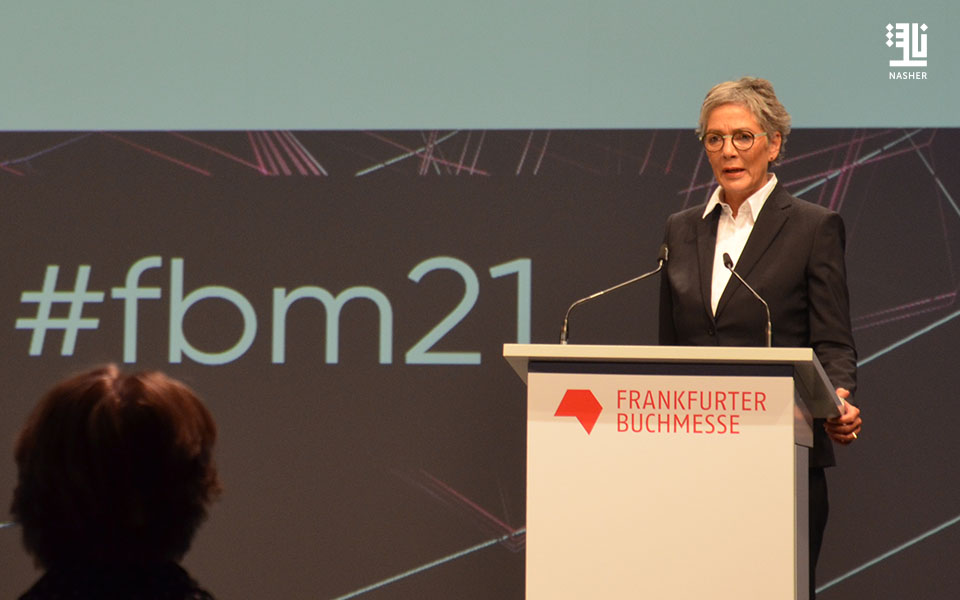The chairwoman of the Börsenverein Karin Schmidt-Friderichs, declared the 73rd Frankfurt Book Fair ‘re:opened’ on Tuesday this week (19 October), a play on its ‘re:connect’ theme. Out on the floor of the fair there is a palpable sense of relief that the industry is face-to-face again, and while it is by no means full, there are still some 2,000 exhibitors here (70 signed up just this week) and this year’s return of the physical event seems like a grateful step in the right direction. There are still fist pumps rather than handshakes, but there is a good deal of hugging too: the international book industry is much like a family and occasions like Frankfurt are its equivalent of Eid or Christmas: a chance to get together.
The opening ceremony showed the best of Frankfurt with thoughtful addresses that stressed the importance of books, not just during the pandemic but universally, and dare one say it, eternally. Schmidt-Friderichs said that during the pandemic people had read books for “escape and support” and that the industry had shown “great agility” in coping with an unprecedented situation. She went on to suggest that the pandemic had led to a reappraisal and that “we should now look for more tolerance, respect, open-mindedness…” She added that she felt “freedom of expression, freedom of speech” were “increasingly important”, as were respect for the environment and “lively city centres not just full of chain stores”.
This plea for tolerance and respect for the written word, was echoed by Frankfurt’s First Deputy Mayor of Frankfurt, Dr Nargess Eskandari-Grunberg, who was born in Tehran. She noted that “democracy cannot be taken for granted, it must be defended. In almost 90% of the world freedom of speech cannot be taken for granted”.
But one woman received a standing ovation after her address. This was Her Excellency Governor General of Canada, Mary May Simon. If books can take you to another world, so can Her Excellency. She recalled her Inuit upbringing, “where I learned to sled with dogs, paddle a kayak, hunt fish and live off the land”. She believes Canada’s glorious multi-culturalism is one of its finest qualities and said she was delighted that it is being highlighted here in Frankfurt.
Via a satellite link that left something to be desired Canada’s unofficial literary Queen (she shares the position with Alice Munro), noted how the situation for indigenous writers was so much better than when she was starting out in the Fifties. “Every province, every territory has its writers and artists of all kinds now. The rise of indigenous writing has been remarkable. And books allow us inside other worlds.”
But Simon also acknowledged how important it was for indigenous writers to shine a light on dark aspects of the country’s history, notably the mistreatment of indigenous children at the country’s residential schools. There is more pain to come on this subject, but books are playing their role in the difficult reconciliation that is underway.







